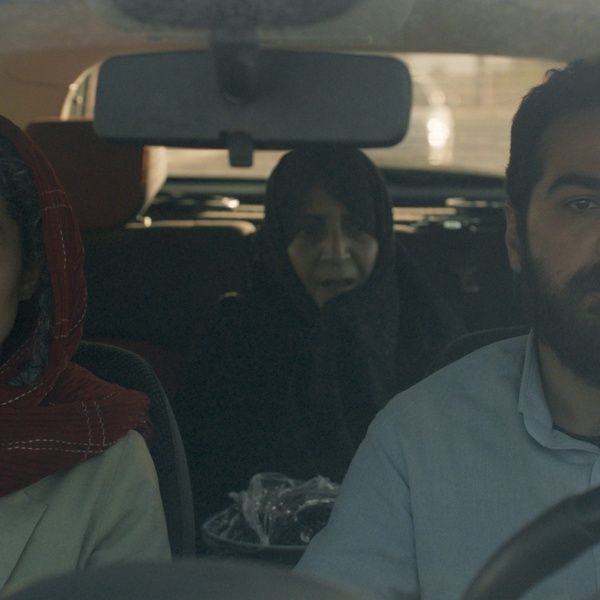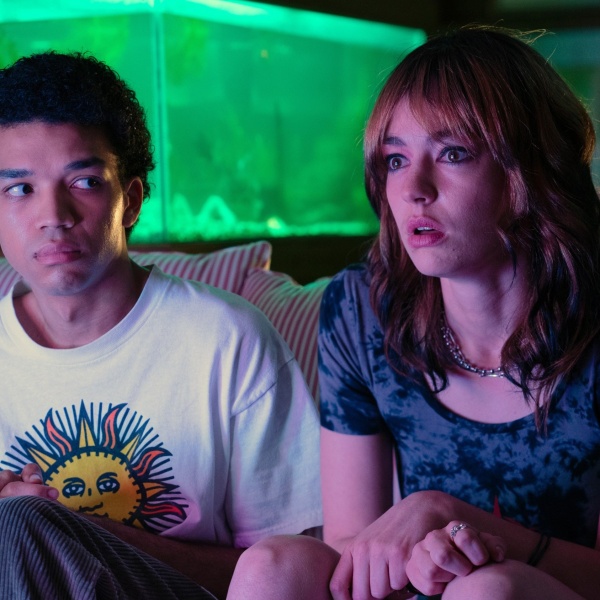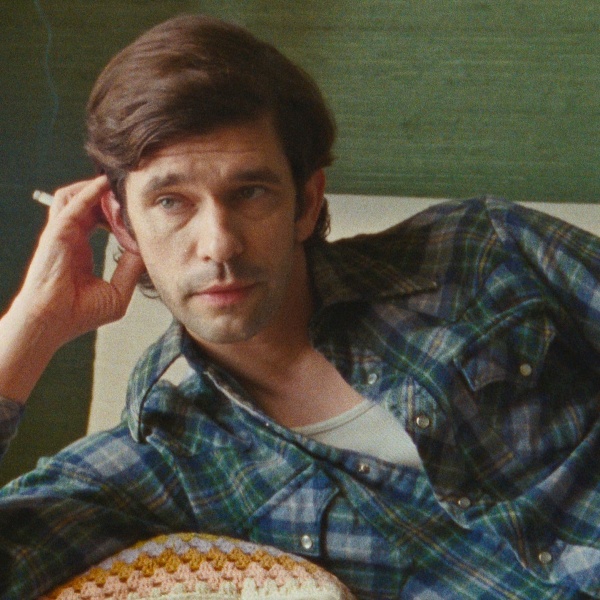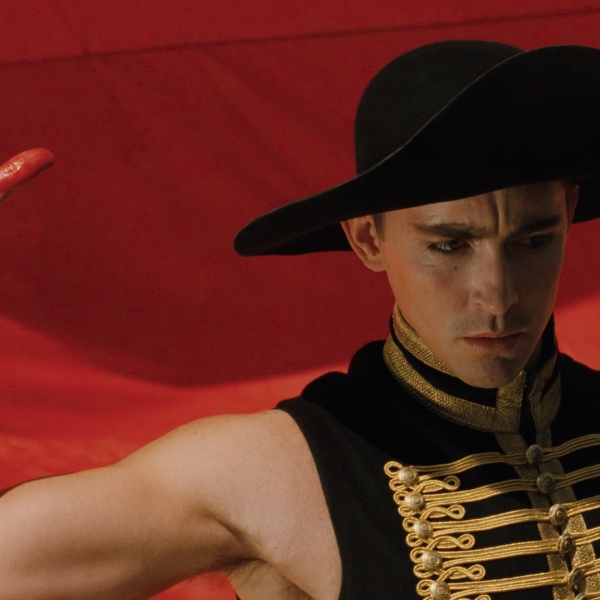.jpg)
Every year, we wake up for the Academy Award nominations expecting a surprise, hoping the same ten or fifteen movies don’t keep getting referenced, honored, what-have-you. Last year, the Academy did a decent job as the field of Best Picture candidates swelled to ten, allowing for more exposure for films from different categories. We’re not going to go around endorsing “District 9” as one of that year’s finer films, but we were happy it got to sit at the table.
This year, while some of us are as pleased as punch about the Academy’s annual Celebration Of The Middlebrow, there are some nominations we expected that went unrealized. There’s a couple we counted on (even bet money on), but by and large, these were gatecrashers we had hoped would receive some recognition. Guess the right people didn’t get paid.
BEST DIRECTOR Christopher Nolan, “Inception“
Christopher Nolan, “Inception“
Someone out there does not like Christopher Nolan. With a Best Director nod seen as an admission that the recipient film might be among the five best films of the Best Picture ten, color us surprised that Nolan would make his second straight critically-adored blockbuster only for the Oscars to react indifferently. While “Inception” made the final ten, Nolan’s work in assembling the complex dream world of his film went unrecognized (the film was also unfairly boxed out of Best Editing). A craftsman who makes intensely personal blockbuster films that still thrill and titillate, “Inception” was big intelligent, puzzlebox, created for public consumption but without sacrificing an inch of its intelligence. Not being honored in this category seems like a tacit admission that the Academy really didn’t get all that dream-hopping business at all.
 Debra Granik, “Winter’s Bone“
Debra Granik, “Winter’s Bone“
All of the accolades for this film have been going to Jennifer Lawrence, for what is indeed a powerful performance playing Ree, but the heartwrenching, stagnant atmosphere of the character’s surroundings is owed to Debra Granik and her direction. Without the ramshackle house, barren trees, rolling hills and incredibly menacing midnight water scene (to name a few elements), the film would be just another tale about a young girl’s journey. Granik turns the story into one about the foreign places in our own country and how women navigate and survive them. It’s a powerful movie dominated by a powerful performance, but without Granik’s assured hand, Ree’s plight would never have resonated as deeply in our hearts as it did.
BEST PICTURE “The Town“
“The Town“
We’re not exactly going to go to bat for Ben Affleck‘s second directorial effort as a huge leap in skill from “Gone Baby Gone” — in fact, the entertaining crowd-pleaser is more of a sideways step — but “The Town” is one of the more well-accomplished genre films of the year. In Affleck’s behind-the-camera Sidney Lumet impersonation we saw a film with all the ingredients that would appeal to both younger Academy voters and older, with the wanton violence and intriguing ethnography of the film’s setting playing off well against its measured storytelling and pacing. That the film was also a surprise box office hit was a feather in its cap, and considering it was Warner Bros. only real horse in the Oscar race this year, we figured it would bounce out one of the smaller indie films in the big ten. But don’t fear, while the Oscars rightly favored the indies this time round, it probably won’t be long before Affleck earns his first Best Picture nod.
 “Never Let Me Go“
“Never Let Me Go“
When “Never Let Me Go” was announced as a late season release, we figured it would be an awards contender given the pedigree of the source material and the considerable talent involved. This was before Fox Searchlight left the film out to die with a muted September release, so that the quiet, haunting story of doomed youth playing out a nature vs. nurture horror story was ignored by the general public and blasted by ignorant critics as “cold” and “distant.” As a result, Mark Romanek’s elegiac picture, with its deliberate pace and obtuse alternate reality setting, has been conspicuously absent from awards season chatter, despite boasting first-rate performances and an emotionally urgent screenplay, in a story that plays as the disturbed flip side to the “Harry Potter” fantasies Hollywood indulges annually. As an appropriate side note, given the Oscars’ love for montages, we’re betting we see Ronald Weasley’s scrunty mug during the telecast more than Carey Mulligan’s defeated, heart-breaking visage.
BEST ACTOR “Blue Valentine,” Ryan Gosling
“Blue Valentine,” Ryan Gosling
While none of us really expected to see Ryan Gosling earn a nomination for the indie drama “Blue Valentine” — it’s too small of a picture, and Michelle Williams seemed to carry the weight of the Weinstein Company‘s campaign — it is a bit of a bummer and well, as you can see by our comments section (and/or Twitter), many think that the young actor (who scored a Best Actor nomination for “Half Nelson” at the age of 26) was more deserving than Colin Firth (who might just win this year; he’s due, even though his piece de resistance performance was last year in “A Single Man“). So, again, not really shocking that Derek Cianfrance‘s film didn’t score a Best Picture nomination, nor did Gosling, but it’s a two-hander, so if Williams gets one, so should Gosling. You really can’t have that picture work without two great stellar leads. Next year, Ryan. Keep those gloves on.
BEST ACTRESS Lesley Manville, “Another Year“
Lesley Manville, “Another Year“
It’s a shame that awards season turns everyone into an anal-retentive ass who obsesses over where to “slot” movies, and which “categories” people should go in. Performances are performances, and if an actor creates a compelling, full-sized character, the notion of who or what they are “supporting” should go out the door. But, if you were to be pedantic about these things, then the characters with the most lines and scenes in a film would be the leads. Sony Pictures Classics disagreed, championing Lesley Manville for Best Actress despite her having less material than that film’s own Ruth Sheen. This caused confusion among the pedants who couldn’t understand that Sony didn’t want to campaign for Manville in what the industry would consider a “lesser” category, thus confusing the narrative — a narrative which, for the record, should have discussed the raw emotional force that Manville draws from in creating her tragic, lonely would-be spinster, an avatar for the disenchanted and disappointed and arguably the year’s best female performance.
 Julianne Moore, “The Kids Are All Right“
Julianne Moore, “The Kids Are All Right“
Ok, yes, Annette Bening was always going to take the Oscar nomination over Julianne Moore, we knew that. Why? Because well, her performance is truly the better one — yes, she plays a vile character, but hell, she knocks it out of the park and you truly hate her — and secondly, she’s old, meaning she’s Oscar royalty, and most importantly, she’s never won an Oscar before and has been nominated three times previously. Hmm, anyone smell a lifetime achievement Oscar? The one thing standing in her way is Natalie Portman, but don’t be totally shocked if the Academy decides to give Bening a “thank you for all these great performances” award over the “Black Swan” ballerina.
BEST SUPPORTING ACTOR Jim Broadbent, “Another Year“
Jim Broadbent, “Another Year“
Despite having the most screen time of the male actors in “Another Year,” Broadbent’s character is distant, quieter than the other, more hearty, working class members of the typical Mike Leigh repertoire company. His role is reactionary, and so the character is brought to life by Broadbent’s typical expressiveness. What’s wonderful about this characterization is that there are the working class tensions that bubble when he becomes frustrated or judgmental, but there is also the innate love behind all such outbursts, the genuine affection he has, if not for those surrounding him, than for the camaraderie they bring to his household and the happiness that they bring to his wife. It’s the sort of understated performance that gets overshadowed by some yelling, screaming, awards-hungry lunatic annually, so we’re not surprised to see Broadbent absent.
 Andrew Garfield, “The Social Network“
Andrew Garfield, “The Social Network“
While Oscar prognosticators are gonna have to adjust their crystal balls after “The Social Network” came in a distant third this morning with eight nominations (actually tied for third with “Inception“), it seems Academy voters missed one of the most compelling elements of David Fincher‘s film. No, we’re not talking about Jesse Eisenberg, giving a helluva turn as the ruthless Mark Zuckerberg. We’re talking about Andrew Garfield as his best friend and colleague Eduardo Saverin. Garfield is arguably the beating heart of the film which, honestly, otherwise doesn’t have much of an emotional core. The frail and then fractured friendship between Zuckerberg and Saverin would not have worked as well as it does without Garfield nailing the sensitivity and vulnerability — both weaknesses for driven entrepreneurs — that knock him out of Facebook in a bracing wake-up call to the cutthroat world of internet start-ups.
BEST SCREENPLAY (ORIGINAL) Nicole Holofcener, “Please Give“
Nicole Holofcener, “Please Give“
The little indie film that got no love in 2010, Nicole Holofcener’s “Please Give” was every bit as tough, warm, smart and funny as “The Kids Are All Right” but never quite got on the radar of critics or audiences. And it’s a real shame. The original screenplay by Holofcener intelligently tackles thematic territory largely unaddressed in films big or small, exploring the fine line one walks with everyday decisions about caring for oneself vs looking out for the bigger world that needs a hand. While the film boasts strong performances from all involved — Rebecca Hall, Catherine Keener, Amanda Peet, Oliver Platt — they are aided by a screenplay that gives their characters the depth to make it work. Scripts like these don’t come along very often and this is one the Academy should have recognized.
BEST SCORE Daft Punk, “Tron: Legacy“Maybe the rumors are correct, and the Academy greybeards are becoming more progressive in their choices — it’s not every day that someone like Trent Reznor is being invited to the Oscars. But, that doesn’t mean that they’re going to look at the words “Daft Punk” on the ballots and not think that was a typo. “Tron: Legacy” has a score that bridges the gap between operatic blockbuster and arcane experimentation, but to most, the presence of the French mixmasters suggests a series of dance compositions more than the dense-wall-of-sound-with-traditional-motifs that this voting body roots for. Better luck for “Tron: Threegacy.”
Daft Punk, “Tron: Legacy“Maybe the rumors are correct, and the Academy greybeards are becoming more progressive in their choices — it’s not every day that someone like Trent Reznor is being invited to the Oscars. But, that doesn’t mean that they’re going to look at the words “Daft Punk” on the ballots and not think that was a typo. “Tron: Legacy” has a score that bridges the gap between operatic blockbuster and arcane experimentation, but to most, the presence of the French mixmasters suggests a series of dance compositions more than the dense-wall-of-sound-with-traditional-motifs that this voting body roots for. Better luck for “Tron: Threegacy.”
We were also expecting a little love for Robert Duvall in “Get Low,” for his cranky old codger act, and one of the supporting actresses (Mila Kunis, or Barbara Hershey) for “Black Swan,” but no dice. Early award favorite Sam Rockwell was also shut out, though no one saw “Conviction.” And we liked the experimental cues of “Tron: Legacy” but also the sumptuous “Never Let Me Go” compositions from Rachel Portman far outshone any of the Best Score nominees. And how about some more daring choices? Richard Jenkins dazzled as the harried caretaker in “Let Me In,” a role that required an uneasy balance of faded love, world-weariness and due diligence. Ben Stiller should’ve gotten more due for his turn in “Greenberg” but was likely shut out largely because misanthropes don’t register well with voters, and the public wasn’t too keen on the pic. And how about some visual effects love for Gaspar Noe‘s wildly ambitious “Enter The Void“? Certainly it was more memorable that the ten-minute “Waterworld” sequence that opened “Hereafter.” And if France had their wits about them, they would have served up Claire Denis‘ “White Material” as their foreign submission instead of the stoic and dull “Of Gods And Men” (which didn’t make it in anyway). – with contributions from Catherine Scott, Kevin Jagernauth and RP





